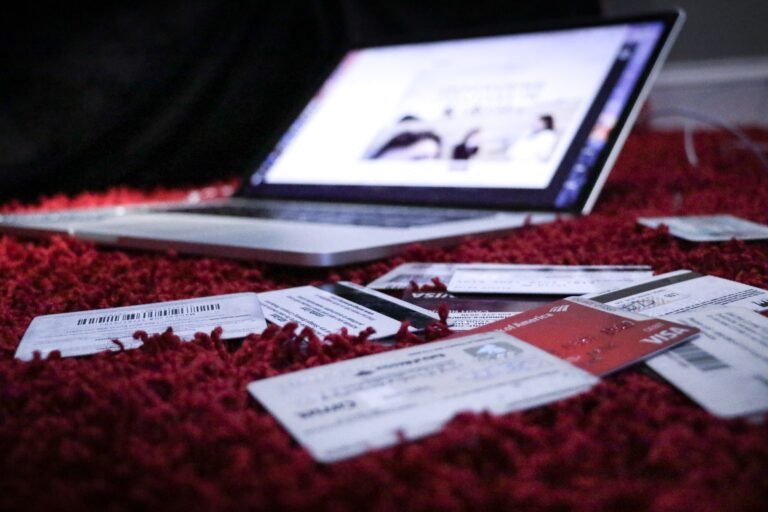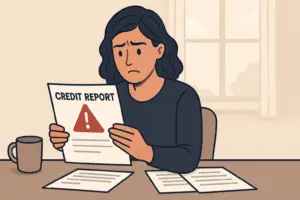Experian Mixed My Credit Report with Someone Else’s, How Do I Fix This?
Understanding the Impact of Credit Report Errors
Our society runs on credit. From credit cards to mortgages, your credit report influences your financial future. When your credit report contains inaccurate information, such as a mix-up with another individual’s details, it can impact your ability to secure a loan, rent an apartment, or even get car insurance. Therefore, knowing how to dispute these errors is crucial to safeguard your financial well-being.
If you are dealing with a credit report mistake, such as a mixup with someone else’s credit report, contact us at Schlanger Law for a private consultation, We bring credit reporting cases on behalf of consumers in New York, New Jersey and nationwide. Call us now at (212) 500-6114.
The Relevance of the Fair Credit Reporting Act (FCRA)
Established in 1970, the FCRA protects your right to accurate credit reports and provides a legal framework for disputing errors. This Act ensures that consumers can monitor their credit reports and dispute inaccuracies, safeguarding their financial futures.
How Do Credit Report Identity Mix-ups Happen?
Credit report errors, including mix-ups with another person’s information, can happen for a variety of reasons: sometimes a person shares both a name and address history with another family member; sometimes two strangers have similar names and/or other identifying information. These mistakes can go unnoticed until you apply for new credit and face rejection or lowered credit scores.
Steps to Correct a Credit Report Mix-Up
Obtain Current Copies of Your Credit Reports
The first step to fix this issue is to get copies of your credit reports from all three major credit bureaus – Equifax, Experian, and TransUnion. Under the FCRA, you have the right to a free credit report every 12 months.
Identify and Highlight Errors
Carefully review each report and note any inaccuracies. Mistakes could include unfamiliar addresses, incorrect social security numbers, or accounts that you didn’t actually open.
Gather Supporting Documents
Gather documents that confirm your identity and specifically relate to the errors on the report. This may include your birth certificate, social security card, passport, driver’s license, account statements with your address, or a pay stub from your employer, as well as information regarding any specific accounts at issue.
File a Dispute
Write a dispute letter to the reporting agency, clearly identifying the mistakes and providing relevant documents that show the errors. Request that the bureau correct your file and ask for written confirmation once the correction has been made. It is preferable to send the dispute by certified mail. Keep copies of everything, including the letter, supporting documents and proof of mailing.
Follow Up
The credit bureau has 30 days to respond to your written dispute. If the errors are not corrected, you may need to hire an attorney with experience in this area of the law.
Role of Consumer Protection Attorneys
When credit bureaus or credit furnishers fail to correct errors on credit reports, hiring a consumer protection attorney may be the only way to get the erroneous information off your credit report.
The Possibility to Sue
Under the FCRA, you can potentially file a lawsuit against the reporting bureau and/or creditor furnisher if they do not take steps to correct errors on your credit reports. You might be able to recover for the damage caused by the mistake on your credit report as well as attorneys fees and costs. Because the FCRA provides that credit reporting agencies and financial institutions that violate the law must pay the consumer’s attorneys’ fees and costs, our firm regularly works on FCRA cases on a contingency.
FAQs for Credit Report Disputes
1. What if my dispute is ignored by the credit bureau?
If your dispute is ignored, you may need to consider legal action. Contact a consumer protection attorney for advice.
2. How often should I review my credit reports?
Regular review of your credit reports is crucial for spotting errors. As a consumer, you have the right to a free report every 12 months from each of the major credit bureaus. There are a variety of free and paid services that allow you to check your credit much more frequently.
3. Can I dispute inaccuracies with the creditor that furnished the incorrect data?
Yes, you can and should dispute the erroneous information directly with the creditor as well. However, this is NOT a subsitute for disputing with the credit reporting agencies. Many FCRA cases fail because the consumer thought that disputing with the creditor was sufficient and neglected to dispute with the credit reporting agency.
4. What types of errors should I look for on my credit report?
Errors can range from incorrect personal information to inaccurate account statuses and wrongful inclusion of someone else’s data.
5. What can I do if my credit score has been negatively impacted by a credit report mix-up?
Once the errors on your credit report have been corrected, your credit score should gradually improve. However, if the damage to your score persists, it may be beneficial to consult with a consumer protection attorney.
If you are dealing with a credit report mistake, such as a mixup with someone else’s credit report, contact us at Schlanger Law for a private consultation. Fair Credit Reporting Act cases are a core part of our practice and we regularly represent victims in New York and New Jersey and around the country. Call us now at (212) 500-6114.







